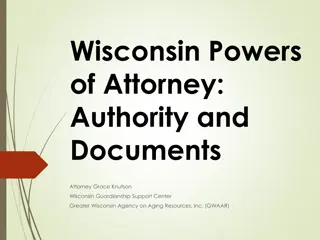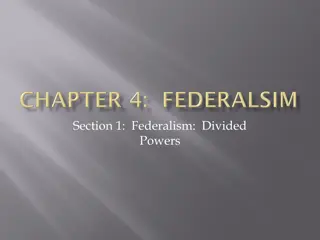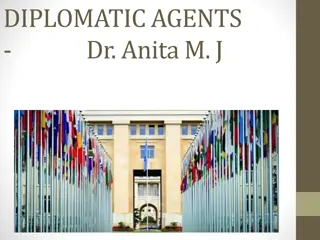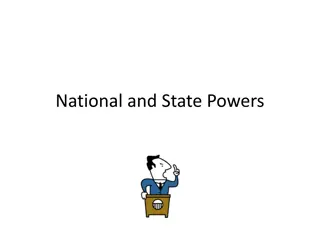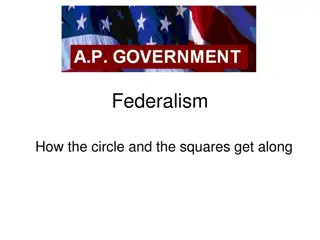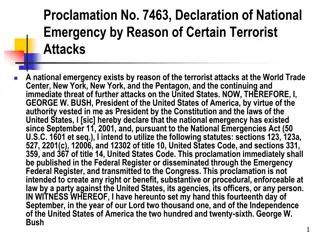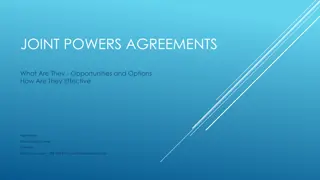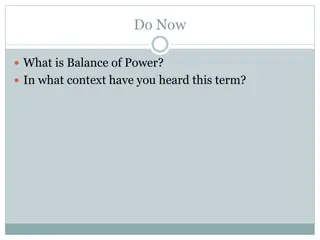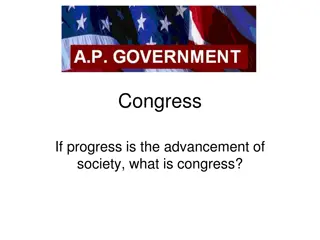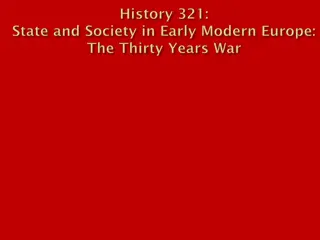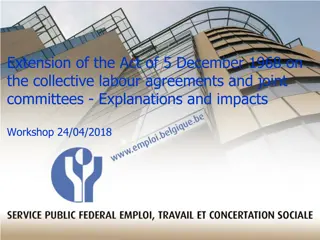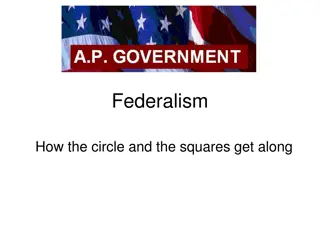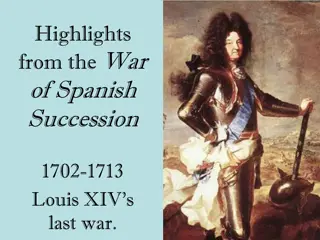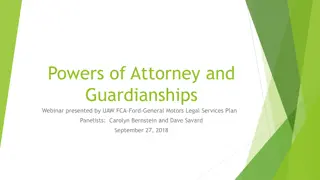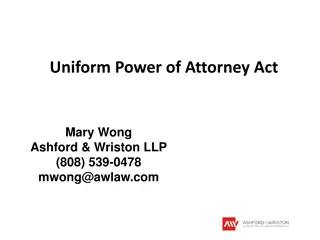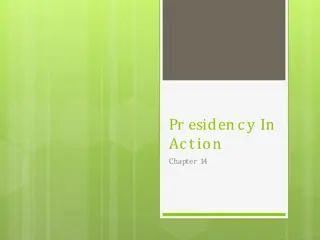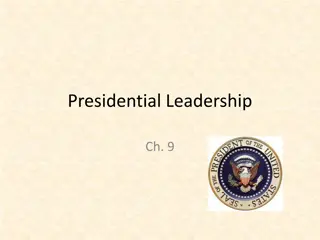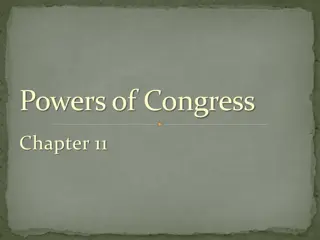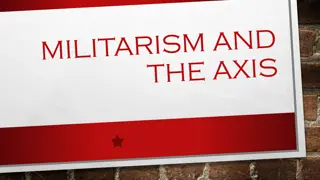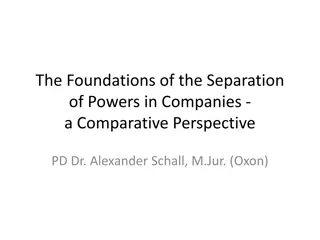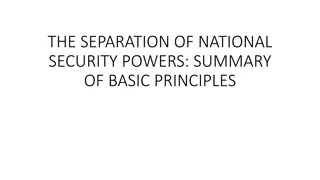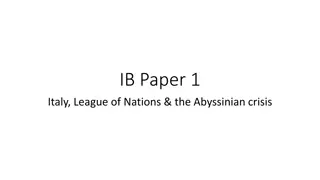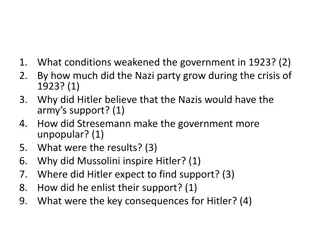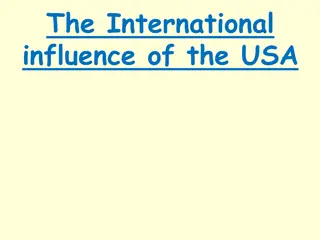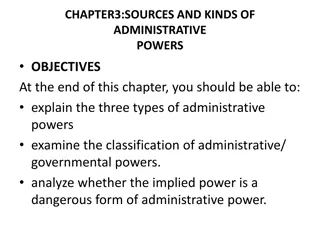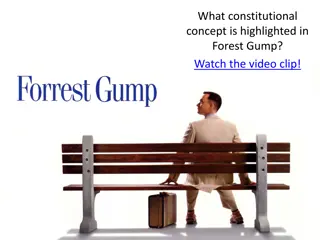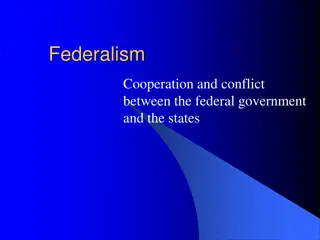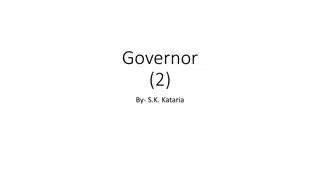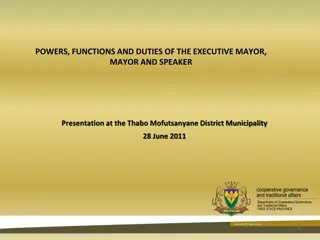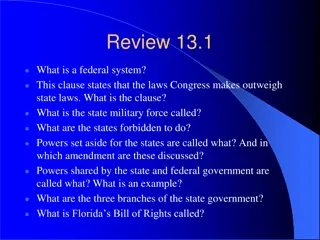Emergence and Expansion of Powers Before the Guptas
Explore the political landscape of ancient India before the rise of the Guptas, including minor powers and rulers like Kushanas, Nagas, Vakatakas, Ikshvakus, and more. Learn about the varied kingdoms and emerging territories shaping the region's history.
6 views • 25 slides
READ⚡[PDF]✔ Emerging Space Powers: The New Space Programs of Asia, the Middle Ea
\"COPY LINK HERE ; https:\/\/getpdf.readbooks.link\/B004NNUV54\n\n[READ DOWNLOAD] Emerging Space Powers: The New Space Programs of Asia, the Middle East and South-America (Springer Praxis Books) | Emerging Space Powers: The New Space Programs of Asia, the Middle East and South-America (Springer Pra
1 views • 6 slides
Understanding Separation of Powers in Constitutional Law
Explore the concept of separation of powers in constitutional law, as depicted through the lens of the Diploma in Law program from Malta. Learn about the principles of checks and balances, the relationship between the Executive and the Legislature, and the significance of the rule of law in a democr
0 views • 10 slides
Understanding Police Powers on the Street Webinar
Explore the powers and procedures of police officers on the street in this informative webinar featuring Sophie Leaver, a Police and Administrative Law Solicitor from Redfern Legal Centre. Topics covered include where police derive their powers, identity requests, personal searches, complaints proce
4 views • 44 slides
Understanding Wisconsin Powers of Attorney: Core Concepts and Types
Explore the essential concepts of powers of attorney in Wisconsin, including self-determination, legal documentation, next of kin laws, and types such as health care and finance powers. Learn about the authority granted to agents and the implications of durable power of attorney.
0 views • 51 slides
Understanding Federalism: Divided Powers and Constitutional Framework
Federalism is a system where powers are divided between a central government and regional entities. It involves delegated, reserved, exclusive, and concurrent powers outlined in the Constitution. The supremacy of the Constitution is pivotal in establishing a unified federal government.
0 views • 5 slides
Understanding the Role and Importance of Diplomatic Agents
Dive into the world of diplomatic agents, exploring their history, classification, immunities, and privileges. Learn about the Vienna Convention on Diplomatic Relations, theories governing diplomatic relations, and the critical role these agents play in modern international affairs.
0 views • 17 slides
Understanding National and State Powers in the United States
The Constitution grants specific powers to the national government, including expressed, implied, and inherent powers. States have reserved powers, and there are concurrent powers shared by both levels of government. The Supremacy Clause ensures that national laws take precedence over state laws. Ex
0 views • 13 slides
Understanding Federalism in the United States
Federalism in the United States involves the relationship between the federal government and state governments, with terms such as delegated powers, reserved powers, concurrent powers, and the Elastic Clause playing key roles. The aftermath of events like Hurricane Katrina and policies such as No Ch
0 views • 30 slides
Effect of Normalization of Relations with Cuba on Georgia
The normalization of relations with Cuba has had significant effects in Georgia, particularly in terms of diplomatic relations, trade embargo laws, and trade relations. This includes a look at the naming of ambassadors, the importance of diplomatic relations, trade restrictions with various countrie
0 views • 8 slides
Italian Foreign Policy: History and Paradigms from the 19th Century
Examining Italian foreign policy from 1860 to 1922, this analysis delves into the contrasting diplomatic styles of Italy and France, the outcomes of the Risorgimento movement, the pursuit of parity with European powers, and the concept of "Artichoke policy." It highlights Italy's unique approach to
0 views • 49 slides
Understanding National Emergency Declarations and Emergency Powers Laws
This content delves into the legal aspects of national emergency declarations, emergency powers laws, and judicial review of emergency declarations. It covers the purpose, termination, historical context, congressional oversight, and impact on presidential powers. It also explores the complexities o
0 views • 6 slides
Understanding Joint Powers Agreements: Opportunities, Options, and Effectiveness
Joint Powers Agreements (JPAs) enable public agencies to collaborate efficiently, providing services and facilities in line with various factors. Idaho Code outlines the purposes, definitions, and powers that can be jointly exercised. This legal framework facilitates cooperation among entities, alth
0 views • 34 slides
Understanding Balance of Power in 18th Century Europe
Balance of power in 18th-century Europe was a concept where great powers aimed to maintain equilibrium to prevent one nation from becoming too powerful. This balance was evident in events like the War of the Austrian Succession and the Diplomatic Revolution of 1756, which reshaped alliances and riva
0 views • 13 slides
Classroom Guidelines for Lesson on Properties of Exponents
Follow the classroom guidelines for this lesson on Properties of Exponents. Learn about the rules of exponents, how to simplify expressions, and complete bell work matching equations with properties. Homework includes worksheets on horse-breeding and dog eating table scraps. Understand product, quot
0 views • 10 slides
Ecuadorian Diplomatic Crisis: The Raid on Mexico's Embassy and Its Global Impact
Ecuadorian police raid Mexico's embassy in Quito, arresting former Vice-President Jorge Glas. Mexico grants him asylum, leading to a diplomatic standoff. The incident reflects political tensions between the countries and raises concerns about adherence to diplomatic norms. Regional powers condemn Ec
0 views • 5 slides
Understanding the Role and Structure of Congress in the US Government
Congress, as the legislative branch of the US government, plays a vital role in advancing society by making laws and representing the interests of the American people. Founded with intentions to balance powers and represent states of different sizes, Congress is divided into the House of Representat
0 views • 32 slides
Political and Diplomatic Developments of the 1620s
The 1620s were marked by key political and diplomatic developments including the issuance of the Edict of Restitution by Ferdinand II in 1629. Warfare financing, military conflicts, and the revival of Catholicism in the Empire stirred mixed reactions from France and Spain. The era also saw significa
0 views • 28 slides
Understanding the Extension of the Act of 5 December 1968 on Collective Labour Agreements
Exploring the extension of the Act of 5 December 1968 on collective labour agreements and joint committees, this workshop delves into its scope, importance of joint committees, and exceptions such as diplomatic missions. The Act applies to private sector employers, workers, and specified Belgian pub
0 views • 28 slides
Understanding Federalism: Powers, Relationships, and Key Terms
Explore the concept of Federalism through the relationship between the federal government (circle) and state governments (squares). Discover the powers involved such as Delegated, Reserved, Concurrent, and Prohibited powers. Delve into significant cases like McCulloch v. Maryland, terms like the Ela
0 views • 28 slides
Insights from the War of Spanish Succession (1702-1713)
The War of Spanish Succession (1702-1713) marked Louis XIV's final war, reflecting a complex political landscape in Europe. The conflict arose due to the declining power of Spain, with the last Hapsburg monarch, Charles II, facing challenges of inbreeding and mental deficiencies. The struggle for co
0 views • 20 slides
Understanding Powers of Attorney and Guardianships Presentation
This presentation covers important aspects of Powers of Attorney and Guardianships, including types of powers of attorneys, when they are needed, who should be given power of attorney, responsibilities if named as an attorney, and considerations regarding revocation. It also discusses the need for g
0 views • 11 slides
Understanding the Uniform Power of Attorney Act and Hawaii Act 22
Explore the significance of the Uniform Power of Attorney Act and Hawaii Act 22 regarding Powers of Attorney, termination of agent's authority, general powers granted, and more. Learn about the legal document granting authority to act on behalf of a principal and the termination clauses that may be
0 views • 22 slides
Understanding Presidential Powers in the United States
The content discusses various powers of the President of the United States, including oath of office, executive orders, appointment power, removal power, diplomatic and military powers, treaties and agreements, commander-in-chief role, and legislative and judicial powers. It covers aspects like maki
0 views • 12 slides
Powers of Congress: Legislative, Implied, and Congressional Powers Explained
Explore the various powers of Congress, including legislative powers such as enumerated and implied powers, as well as congressional powers like regulating commerce and funding the government through taxes. Discover how Congress exercises authority granted by the Constitution to fulfill its roles an
0 views • 23 slides
Understanding Presidential Powers and Leadership in the U.S.
The Constitution lays a broad framework for presidential powers, with inherent powers being claimed by presidents outside the Constitution. Informal sources of power, such as executive privilege, also play a role. Modern presidents use mass media to build support for their ideas but face limitations
0 views • 21 slides
Powers of Congress and Constitutional Framework
The powers of Congress in the United States are shaped and limited by two fundamental facts: limited government and a federal system. The Constitution grants Congress powers through expressed, implied, and inherent powers. The Congressional view of power varies between strict constructionists and li
0 views • 25 slides
The Formation and Goals of the Axis Powers in World War II
The Axis Powers, composed of Italy, Japan, and Germany, were established to challenge the existing European order and expand their influence. Through alliances and shared military ambitions, they aimed to dominate different regions of the world during World War II, with Germany targeting Europe, Ita
0 views • 8 slides
The Foundations of the Separation of Powers in Companies
The separation of powers in companies is based on the dualism of organs: the Board and General Meeting. The actual situation in companies diverges between large public companies with autonomous management and smaller private companies with owner-operators. The search for the foundations of the separ
0 views • 15 slides
Understanding the Separation of National Security Powers
The separation of national security powers involves the formalist view where Congress makes laws, the Executive executes them, and the courts interpret them. The branches' powers are often blurred, with Congress able to delegate lawmaking power to the Executive. The Executive can also acquire custom
0 views • 8 slides
Abyssinian Crisis: Italy, League of Nations, and the Invasion of Abyssinia
The Abyssinian crisis of the 1930s was sparked by the Wal-Wal Incident, leading to the Italian invasion of Abyssinia. Mussolini's aims in invading Abyssinia included territorial expansion and revenge. Despite diplomatic efforts, the invasion occurred with Mussolini believing that the UK and France w
0 views • 11 slides
Evaluating Weimar Germany's Recovery Period 1924-1929
The period of Weimar Germany from 1924 to 1929 witnessed economic, diplomatic, and political recovery under the leadership of Stresemann. The strengths included growth in industries, resolution of the reparations issue, and improved working conditions. However, challenges such as budget deficits, de
0 views • 15 slides
Understanding the International Influence of the USA
Explore the extensive international influence of the USA, focusing on its role in global organizations, relationships with other world powers, economic and military impact, membership in international bodies, involvement in recent conflicts, and diplomatic relations. Learn about the significance of
0 views • 69 slides
Understanding Administrative Powers and Objectives
Explore the sources and types of administrative powers, including express, implied, and incidental powers. Delve into the classification of governmental powers and evaluate the implications of implied powers. Gain insights into how constitutional provisions and delegated legislation contribute to th
0 views • 16 slides
Understanding Federalism in the US Constitution
Forest Gump showcases the conflict between state and federal powers, exemplified by Governor George Wallace's refusal to desegregate the University of Alabama. The scenario underscores the concept of federalism, which isn't explicitly stated in the Constitution but is evident in the division of powe
0 views • 18 slides
Replace or Modify Diplomatic, Consular, or International Organization ID Cards Guide
Learn how to replace or modify lost or damaged Diplomatic, Consular, International Organization, or Special ID cards. Follow a simple process including logging in, selecting the replacement option, filling a form, uploading documents, and awaiting confirmation. The Mission will notify you once the n
0 views • 5 slides
Understanding Federalism: Cooperation and Conflict Between Governments
Federalism entails the division and sharing of powers between national and state governments, aiming for cooperative problem-solving. James Madison highlighted the need for checks and balances to control government abuse. The Constitution delegates specific powers to the national government while al
0 views • 9 slides
Role and Powers of a State Governor in India
The Constitution of India outlines the executive powers and duties of a State Governor, including the ability to grant pardons, reprieves, and make orders on behalf of the government. The Governor is advised by a Council of Ministers led by the Chief Minister, with certain functions requiring the Go
0 views • 9 slides
Powers, Functions, and Duties of Executive Mayor, Mayor, and Speaker
Statutory powers, functions, and duties of the executive mayor, mayor, and speaker entail receiving reports, identifying municipality needs, recommending strategies, evaluating progress, overseeing service provision, and involving communities in municipal affairs. Delegation of powers, reporting to
0 views • 73 slides
Overview of State Government and State Legislatures in Florida
A federal system is a political framework where power is divided between a central government and individual states. In this system, laws created by Congress take precedence over state laws. The supremacy clause enforces this hierarchy. States are prohibited from actions like declaring war or mintin
0 views • 12 slides
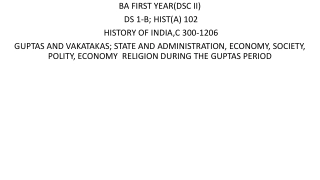
![READ⚡[PDF]✔ Emerging Space Powers: The New Space Programs of Asia, the Middle Ea](/thumb/21554/read-pdf-emerging-space-powers-the-new-space-programs-of-asia-the-middle-ea.jpg)


